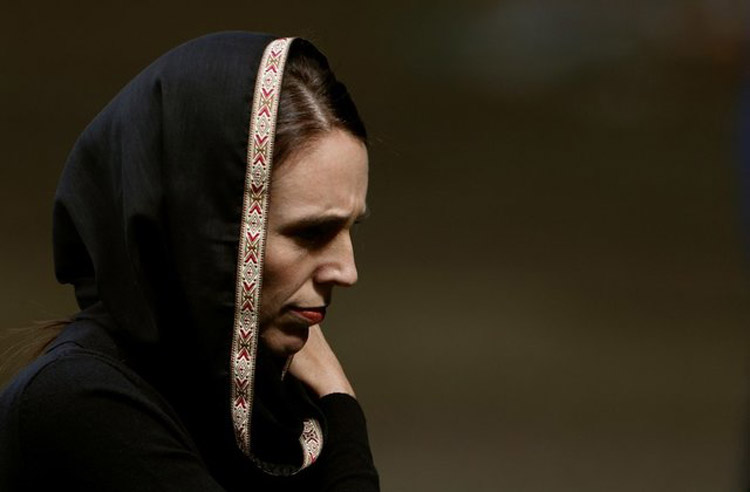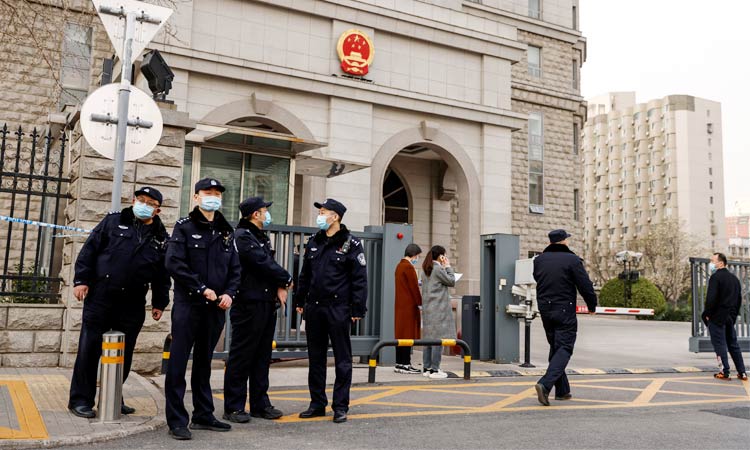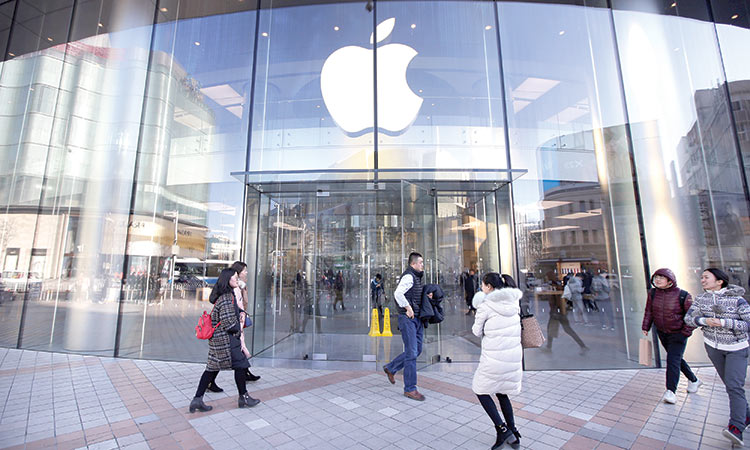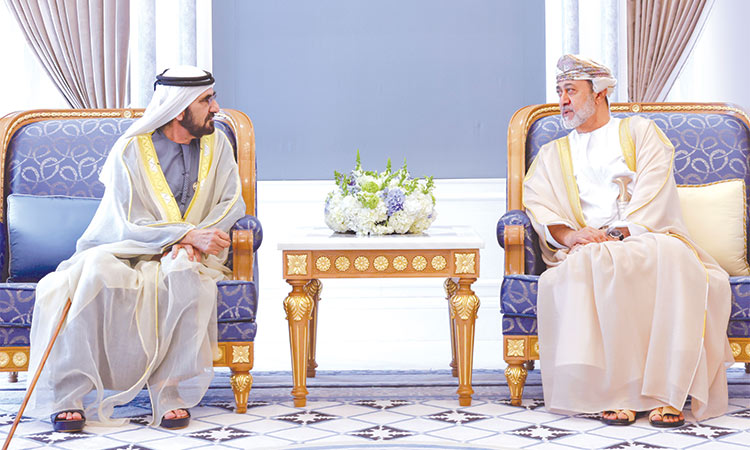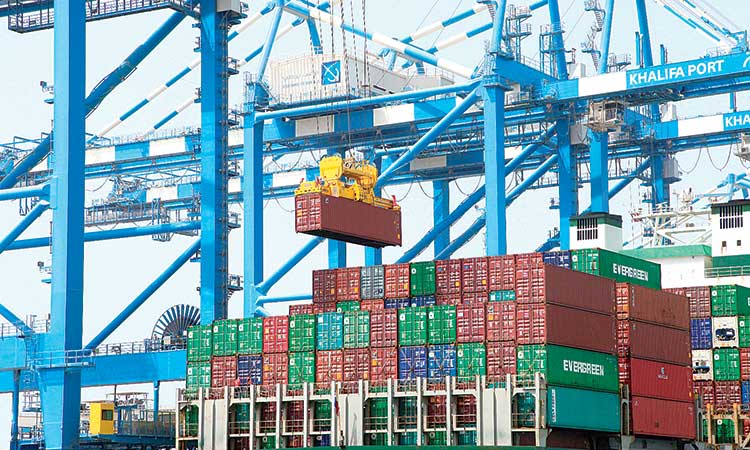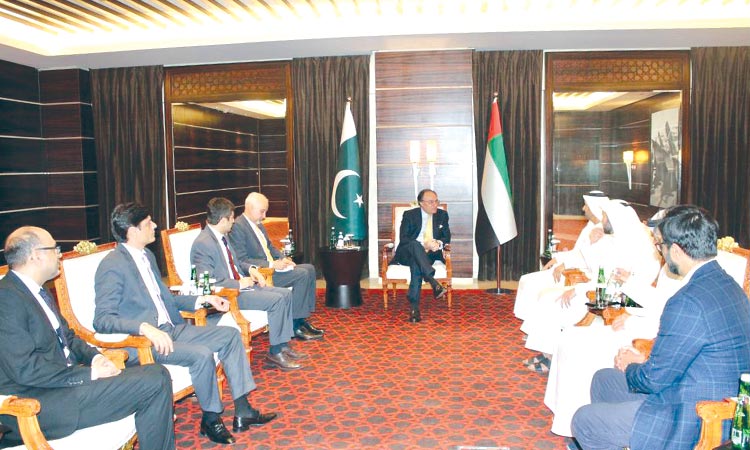UAE’s non-oil trade with China hits $43 billion mark in 2018
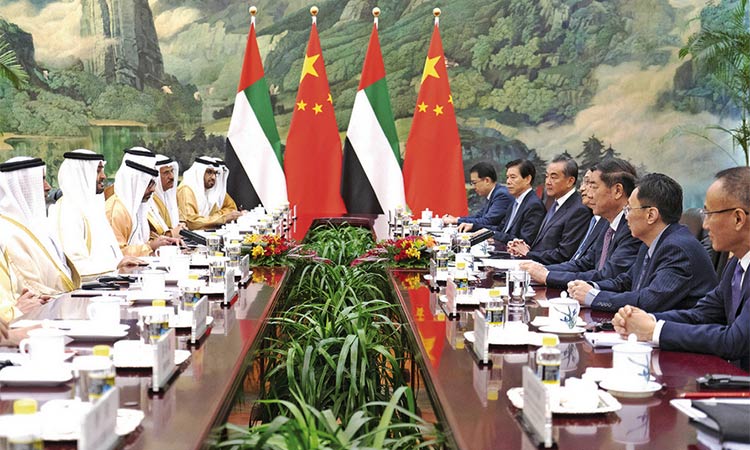
Sheikh Mohamed in a meeting with Li Keqiang, Premier of the State Council of China (4th right), at the Great Hall of the People in Beijing on Monday. WAM
In an interview with the Emirates News Agency, WAM, on the occasion of the official visit of His Highness Sheikh Mohamed Bin Zayed Al Nahyan, Crown Prince of Abu Dhabi and Deputy Supreme Commander of the UAE Armed Forces, to China as head of a high-level UAE delegation, Al Mansouri said that China was the UAE’s leading source of commodities imports in 2018, accounting for 15 per cent of its imports, valued at over $38 billion. He also pointed out that China is the source of 27 per cent of the UAE’s imports from Asia, and is ranked 11th internationally in terms of receiving non-oil exports and re-exported goods from the UAE.
He then stressed that the UAE is in the list of 25 leading countries that attract Chinese exports and the first in the Arab world, accounting for 29 per cent of Chinese exports to Arab countries. The UAE is China’s most important trade partner in the Arab world, accounting for 26 per cent of total non-oil-foreign trade between China and Arab countries.
Al Mansouri explained that the UAE accounts for 36 per cent of China’s export of advanced technology products to Arab countries, and is in the list of the 20 leading countries that accept Chinese exports, as it accounts for 1.1 per cent of China’s total international commodity exports. The UAE provided 16 per cent of Arab non-oil exports to China in 2018, he noted.
Regarding joint future projects, Al Mansouri noted that both countries will witness further cooperation in key areas that serve their development agendas, including renewable energy, space, the knowledge economy, small and medium-sized projects and other vital sectors, as well as major infrastructure and logistics services projects that are being implemented as part of the cooperation plans and development projects of the “Belt and Road Initiative.”
Al Mansouri pointed out that the UAE is a key hub for marketing Chinese products in the region, noting that the largest market for Chinese goods is in Dubai, which is a major regional trade centre and a platform for showcasing Chinese goods and products.
Regarding the growth in number of Chinese tourists visiting the UAE last year, Al Mansouri stressed that the UAE is the leading destination for Chinese tourists in the region, due to its developed modern tourism centres and the historic areas. It is also one of the world’s best tourism destinations in terms of entertainment, culture, sports and shopping, as well as events and festivals, due to the presence of an advanced air transport network covering and connecting all parts of the world. All these factors and more have made the UAE a preferred destination for Chinese tourists, and the availability of over 75 weekly flights between the two countries and their mutual visa-exemption agreement have promoted mutual tourism. The number of hotel guests from China in 2018 amounted to around 1.46 million, and the Chinese market occupied the fourth place in terms of number of hotel guests in the UAE.
“There are many bilateral cooperation agreements signed by our countries to consolidate our comprehensive strategic partnership. During the historic visit of Xi Jinping, President of China, to the UAE in July 2018, 13 cooperation agreements and Memoranda of Understanding were signed, to strengthen our strategic partnership and bilateral cooperation and create new opportunities for joint work in various sectors,” Al Mansouri said.
Regarding the number of Chinese companies, agencies and trademarks in the UAE, Al Mansouri explained, “The UAE has a strong investment environment in terms of available investment opportunities, strategic location, and security and stability. It is also a developed country in terms of infrastructure, services, flexible laws and ease of practicing business. These privileges have encouraged Chinese companies and investors to establish and run their businesses in the UAE, and have made it a regional platform for expansion. The UAE hosts over 4,000 Chinese companies, 327 Chinese trade agencies, and around 6,600 Chinese trademarks registered in 2017, and four leading Chinese banks have opened branches in the UAE.”
Regarding the balance between Chinese investments in the UAE and Emirati investments in China, he noted that China is the seventh leading international investor in the UAE, with Chinese direct investments at the end of 2017 amounting to $4.6 billion. Direct Chinese investments in the UAE from 2013 to 2017 rose by 276 per cent, growing four times from $1.2 billion in 2013 to $4.6 billion in 2017. Total Chinese direct investments in the UAE also grew annually by 65 per cent at the end of 2017, compared to the end of 2016.
Al Mansouri, speaking about the UAE’s role in the support to and success of the Belt and Road initiative, said that the UAE has succeeded in implementing massive infrastructure projects, comprising ports considered to the most technologically advanced in the world, alongside modern and integrated transportation networks of international standards, in addition to its strategic location as a vital centre connecting the east and the west, the north and the south, in a region full of emerging markets which offer promising growth prospects.
WAM
